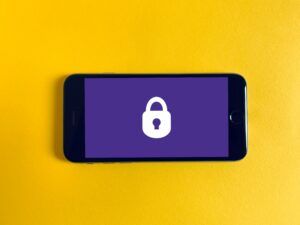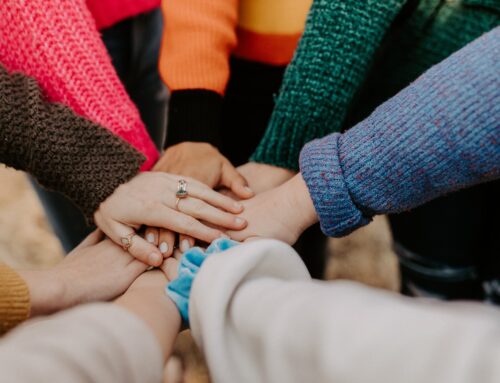You probably use the internet daily, through social media, streaming, online gaming, shopping, or even for homework.
The internet is a big part of our world these days, and it can be a great way to learn, socialise and unwind. But these opportunities can come with risks.
But being a victim of crime is never your fault, no matter where it occurs. And this is the same for online crime. It doesn’t matter where on the internet it happens, you’re never responsible for someone else’s crime.
So to help you spot potential dangers online and keep yourself safe, we’re sharing nine tips that we think can reduce the risk of you experiencing online crime.
Here are our online safety tips:
1. Create strong passwords
For online safety, one of the most important things you can do to keep yourself safe, is create strong passwords.
DO:
- Use three random words
- Use a combination of upper and lower case letters
- Add in numbers and special characters (e.g.! @ * ? #)
DON’T:
- Don’t use your username, your real name, or your family/pet’s names
- Don’t use the word ‘password’
- Don’t use the same password for multiple accounts
For help generating strong passwords you can use sites like Secure Password Generator.
Big Tip: When it comes to your email, create extra strong passwords.
If hackers get access to your email account, they may be able to reset your passwords for other accounts, giving them access and locking you out.
2. Use 2-Factor Authentication (2FA)
2FA is a security system that needs two separate forms of identification to access something.

Basically, this means you’ll get a code sent to your phone, or other device, which you’ll then need to type in to access your account.
It’s an extra layer of security and online safety, in case someone gets hold of your password.
For more information on 2FA, you might find Keeping Activities Safe helpful.
3. Change your privacy settings
Did you know you can set your social media accounts to ‘private’? When set to private you control who can follow or see your account.
This way, you’ll know who’s viewing and interacting with your content, and you can also allow only the people you trust into your online space.
4. Keep your personal information private
Don’t share information like your phone number, email address, or passwords. Also, don’t give away other sensitive details like where you live or the school you attend.
People could use this information to access your online accounts, or overstep boundaries in person.
5. Know the signs of ‘phishing’
Be cautious of any unexpected messages.
Don’t open links from people you don’t know, and be careful with anything that sounds suspicious.
This includes if it comes from someone you know! Why? Because there’s always a chance their account has been hacked.
If it doesn’t sound like them, or they’re asking for information you aren’t sure about, it’s important to do something about it.
Maybe check with them first by contacting them via other means, e.g., give them a ring.
6. Choose the sites you visit carefully
To improve online safety, only visit websites you can trust. If you’re shopping online, do some research on the company to check they’re genuine and safe.
Look for feedback from trustworthy sites.
7. Think before you share
Even if your account is private, once you share a post or send a message online, you lose control of it.
Think about the fact that your parents, teachers or future employers could see your content before you decide to share it.
8. Know the signs of unhealthy friendships
Social media and online gaming can be a great way to make friends, but it can be difficult to know who is trustworthy in those spaces.
Meeting someone in person after speaking with them online can be risky, so you should only meet people if a responsible adult (e.g., parent/carer/teacher) knows about what you’re doing.
If an online friend asks for anything that makes you feel uncomfortable (e.g., money, photos, personal information, or anything else), you should tell a responsible adult, set some boundaries or remove them as a friend.
Big Tip: Remember, a real friend would never want you to feel uncomfortable or make you feel bad for setting boundaries.
9. Take some time away from your screen
Streaming platforms, online gaming, and social media can be entertaining, but the technology is designed to keep you online for as long as possible.

It can be tempting to keep scrolling or watching or playing, but remember to have a break every now and then.
You can do this by stopping to talk to your friends and family, getting some fresh air, moving your body through exercise, or anything else you can think of!
Summary
Even with all of these protective steps in place, you still may find yourself being targeted.
So it’s important to remember that if you’re feeling uncomfortable in any way about what you’re experiencing online, to speak with a responsible adult.
The sooner you do the better.
Being a target of online crime is never your fault, and there are options for you. Our team is here to listen and help you move on from your experience.
You can report the crime to the police if you want to. But if you don’t feel able to do this by yourself, we can help you.
Written by Phoebe
. . .
If you or your child has been affected by crime then you can contact us via our live chat facility or call our Gloucestershire team on TN 0808 281 2446 (9am-8pm, Mon to Fri) for free and confidential advice.

